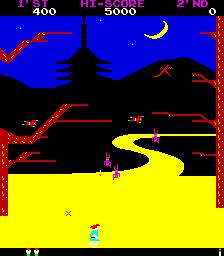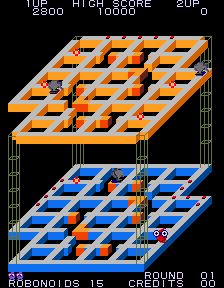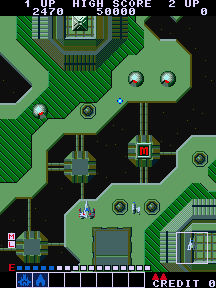
Sasuke vs. Commander
(1980)

Marvin's Maze
(1983)

Vanguard II
(1984)

HAL 21
(1985)
 Sasuke vs. Commander (1980) |
 Marvin's Maze (1983) |
 Vanguard II (1984) |
 HAL 21 (1985) |
 T.A.N.K / T.N.K. III (1985) |
 ASO - Armored Scrum Object / Alpha Mission (1985) |
 Ikari / Ikari Warriors (1986) |
 Athena (1986) |
 Dogosoken / Victory Road (1986) |
 Bermuda Triangle (1987) |
 Psycho Soldier (1987) |
 Touch Down Fever (1987) |
 Guevara / Guerilla War (1987) |
 Gold Medalist (1988) |
 Datsugoku - Prisoners of War / P.O.W. - Prisoners of War (1988) |
 Ikari III: The Rescue (1989) |
 Genshi-Tou 1930's / Prehistoric Isle in 1930s (1989) |
 Super Champion Baseball (1989) |
![STREET SMART - is the player character in this game secretly takuma sakazaki? IT'S TIME FOR SOME GAME TH- [WE ARE NOT DOING THIS JOKE - Ed]](images/sac0/sac0streetsm.png) Street Smart (1989) |
 SAR - Search and Rescue (1989) |












